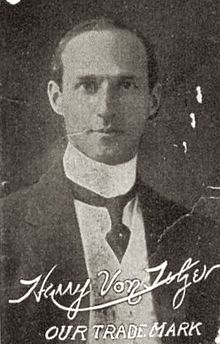This is a list of notable events in music that took place in the year 1911.

Harry Von Tilzer was an American composer, songwriter, publisher and vaudeville performer.
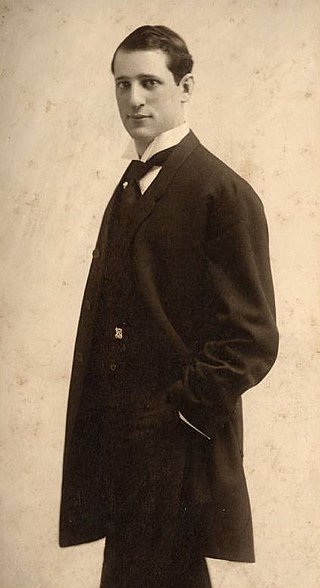
Albert Von Tilzer was an American songwriter, the younger brother of fellow songwriter Harry Von Tilzer. He wrote the music to many hit songs, including, most notably, "Take Me Out to the Ball Game".
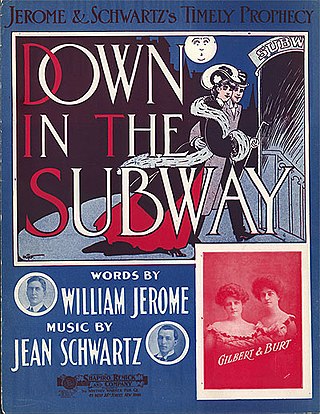
William Jerome Flannery, September 30, 1865 – June 25, 1932) was an American songwriter, born in Cornwall-on-Hudson, New York, of Irish immigrant parents, Mary Donnellan and Patrick Flannery. He collaborated with numerous well-known composers and performers of the era but is best remembered for his decade-long association with Jean Schwartz with whom he created many popular songs and musical shows in the 1900s and early 1910s.

Lew Brown was a lyricist for popular songs in the United States. During World War I and the Roaring Twenties, he wrote lyrics for several of the top Tin Pan Alley composers, especially Albert Von Tilzer. Brown was one third of a successful songwriting and music publishing team with Buddy DeSylva and Ray Henderson from 1925 until 1931. Brown also wrote or co-wrote many Broadway shows and Hollywood films. Among his most-popular songs are "Button Up Your Overcoat", "Don't Sit Under the Apple Tree", "Life Is Just a Bowl of Cherries", "That Old Feeling", and "The Birth of the Blues".
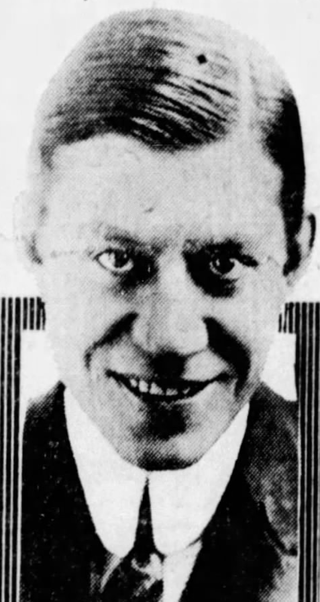
Egbert Anson Van Alstyne was an American songwriter and pianist. Van Alstyne was the composer of a number of popular and ragtime tunes of the early 20th century.

Andrew Benjamin Sterling was an American lyricist.
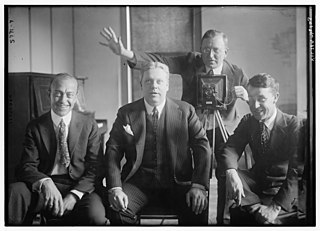
The Peerless Quartet was an American vocal group that recorded in the early years of the twentieth century. They formed to record for Columbia Records, where they were credited as the Columbia Quartet or Columbia Male Quartet. From about 1907, when they began to record for record labels other than Columbia, they were more widely known as the Peerless Quartet.

"Pretty Baby" is a song written by Tony Jackson during the Ragtime era. The song was remembered as being prominent in Jackson's repertory before he left New Orleans in 1912, but was not published until 1916.

William Austin Dillon was an American songwriter and Vaudevillian. He is best known as the lyricist for the song "I Want A Girl " (1911), written in collaboration with Harry Von Tilzer. It can be heard in Show Business (1944) and The Jolson Story (1946). He was born in Cortland, New York and performed at some point in Vaudeville with his brothers John and Harry. He billed his own act as the "man of a thousand songs".

Theodore F. Morse was an American composer of popular songs.

"Under the Anheuser Bush" is a beer garden song commissioned by the Anheuser-Busch brewing company in 1903. With music by Harry Von Tilzer and words by Andrew B. Sterling, the title contains a pun on the surnames of the company's founders.
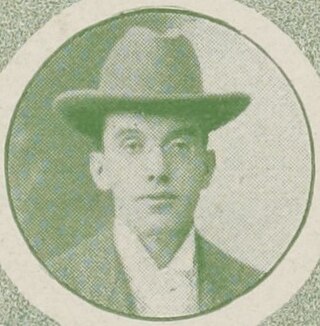
Arthur J. Lamb was a British lyricist best known for the 1897 song "Asleep in the Deep" and the 1900 song "A Bird in a Gilded Cage". He collaborated with many song-writers, including siblings Albert Von Tilzer and Harry Von Tilzer, Henry W. Petrie and Kerry Mills.
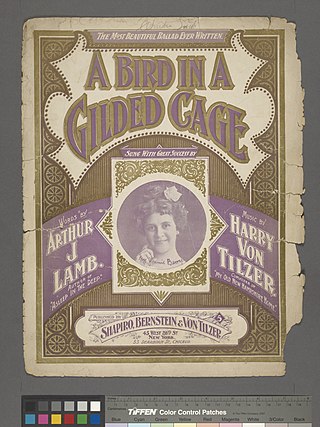
"A Bird in a Gilded Cage" is a song composed by Arthur J. Lamb and Harry Von Tilzer. It was a sentimental ballad that became one of the most popular songs of 1900, reportedly selling more than two million copies in sheet music. Jere Mahoney (Edison) and Steve Porter (Columbia) recorded two early popular versions of this song.

The Dillon Brothers were a popular American comedic Vaudeville act from the late 1880s into the early 1900s, composed of brothers Harry and John Dillon.
Shapiro, Bernstein & Co., Inc. is an American music publishing company established in 1900.

Albert Charles Campbell was an American popular music singer who recorded between the late 1890s and the 1920s. He was best known for his many duo recordings with Henry Burr, and as a member of the Peerless Quartet and other vocal groups, but also recorded successfully as a solo singer both under his own name and under various pseudonyms including Frank Howard.

"It's a Long, Long Way to the U.S.A " is a World War I era song released in 1917. Val Trainor wrote the lyrics. Harry Von Tilzer composed the music. The song was published by Harry Von Tilzer Publishing Company of New York, New York. It was written for both voice and piano.
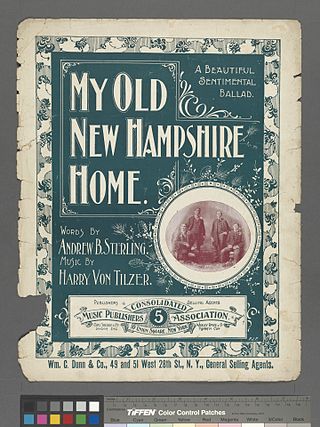
"My Old New Hampshire Home" is an 1898 song that was the first popular hit of composer Harry Von Tilzer, with lyrics by Andrew B. Sterling.
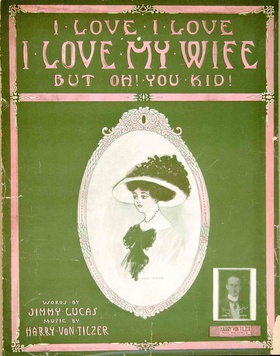
"Oh! You Kid!" was the title, or part of the title, of several popular songs published in 1908 and 1909. It became a widely used popular catchphrase. The most successful song using the phrase, "I Love, I Love, I Love My Wife – But Oh! You Kid!", was written by Harry Von Tilzer and lyricist Jimmy Lucas, and recorded by the duo of Ada Jones and Billy Murray.

